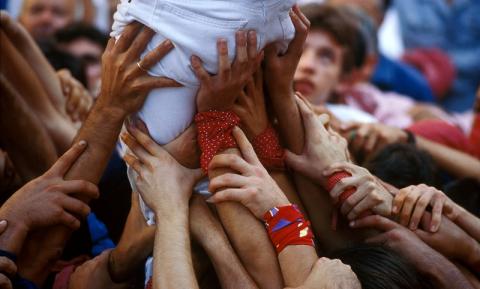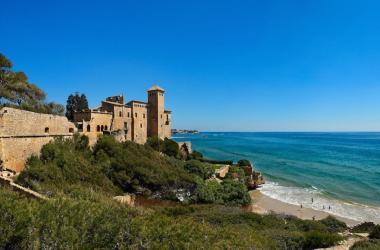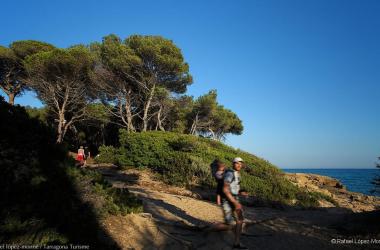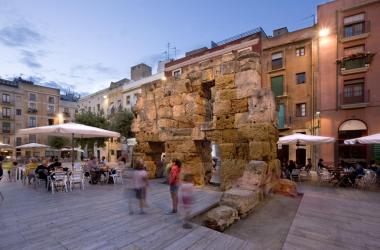As many 'romesco' sauces as lives. 'Romesco' cuisine in El Serrallo

The living heritage of romesco
When talking about romesco sauce, some will think of one of the most typical sauces of Catalan gastronomy, others of the base of one of the most traditional seafood dishes on the coast of Tarragona. In the city of Tarragona, the romesco recipe transcends the dish itself and is a compendium of the lives and stories of the people of the seafaring Serrallo neighbourhood, the living legacy of all the spoon that their grandmothers bequeathed to them.
In the old days, when the boats arrived in port, the fishermen would start cooking on deck, throwing some leftover fish on the cooker to turn it into a rossejat (seafood rice simmered in fish stock), a suquet (stew) or a romesco. The aroma wafted through the streets of the quarter, flooding every corner and alerting children and adults who came to see what the sea had left behind. The fisherman would return home with his dinner and the two or three pieces of fish he had been given.

El Serrallo, a genuine seaside quarter
Half a dozen streets and a handful of low, colourful houses on the seafront, more discreet in the inner streets, today make up the Serrallo quarter, whose personality is inversely proportional to the height of its buildings. High quality murals, related to the tasks of the sea, decorate some of the façades, and in the café in the square it is still possible to see one of those scenes doomed to disappear from the streets of our cities, a table at which dominoes are played with the passion that is put into the transcendental affairs of life.

Grandma Txeli's recipe
Grandmother Txeli was born in front of Sant Pere church, when the boats were moored next to the houses and the water reached the steps of the small church. Her grandfather, Sarpeta - in the neighbourhood all the families have his nickname, more used than the surname itself - had a blue fish boat. He taught her the recipe for the romesco that he prepared in the boat; at home, the diet consisted of sardines one day and anchovies the next. "I'm from the Serrallo, I love it very much. Don't get angry, but it's the most beautiful neighbourhood in Tarragona. It's not much, but we have everything: Easter processions, castellers (human towers groups), devils and the Víbria (animal from medieval and popular fantasy mythology), the best fish", says proudly this woman with bright blue eyes, like the sea in front of her, and 87 summers behind her. As a child, she became familiar with some of the work of mending nets, watching the women anyinyolar (mending the nets) - in the quarter, the classic slang of the seafaring world is mixed with the Serrallo way of speaking. It was her turn to fill the needles. The more you fill, the more you earn, they told her, but in the end, they always gave her a peseta (Spanish official currency prior to the euro). She spells out the recipe for romesco like a litany: "Two slices of bread; some garlic, half of it raw; blanched romesco peppers; a tomato cut in half, turned over and over; a handful of almonds and hazelnuts; a julienned onion. When it's all done, put it in the blender with a splash of white wine. And a chilli, as I like it spicy. The potatoes better the kennebet kind because the monalisa cooks very quickly and tastes like sweet potato. Or some beans. When the potato is almost done, add the fish. If you make it with monkfish, use a little water because the fish is loosening. If it is watery, the corn flour will fix everything. You can also put in a good-sized red snapper or rock forkbeard, which are delicious fish".
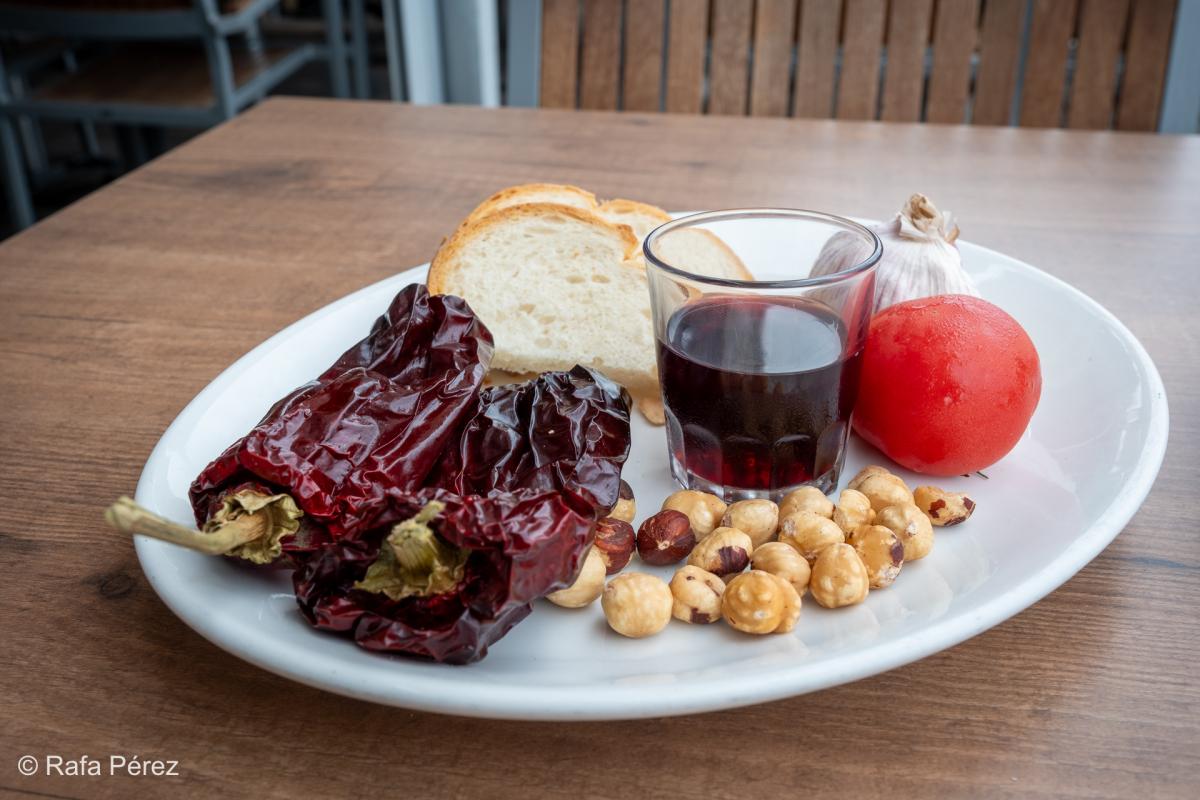
Others will tell you that it's better to poach the garlic and that the pepper should be fried for just a few seconds, without onion, that it's better to use a vi ranci, a traditional wine that ages by oxidation, and that it's heresy not to mince the ingredients by hand with a mortar. They will never agree because that is the richness of romesco: there are as many recipes as there are boats that, over the generations, have sailed out to sea to bring us fish, as many as there are romescaires (masters of romesco). With nuances that become a creed. What they all agree on is that we are talking about the flagship dish of Tarragona's gastronomy.
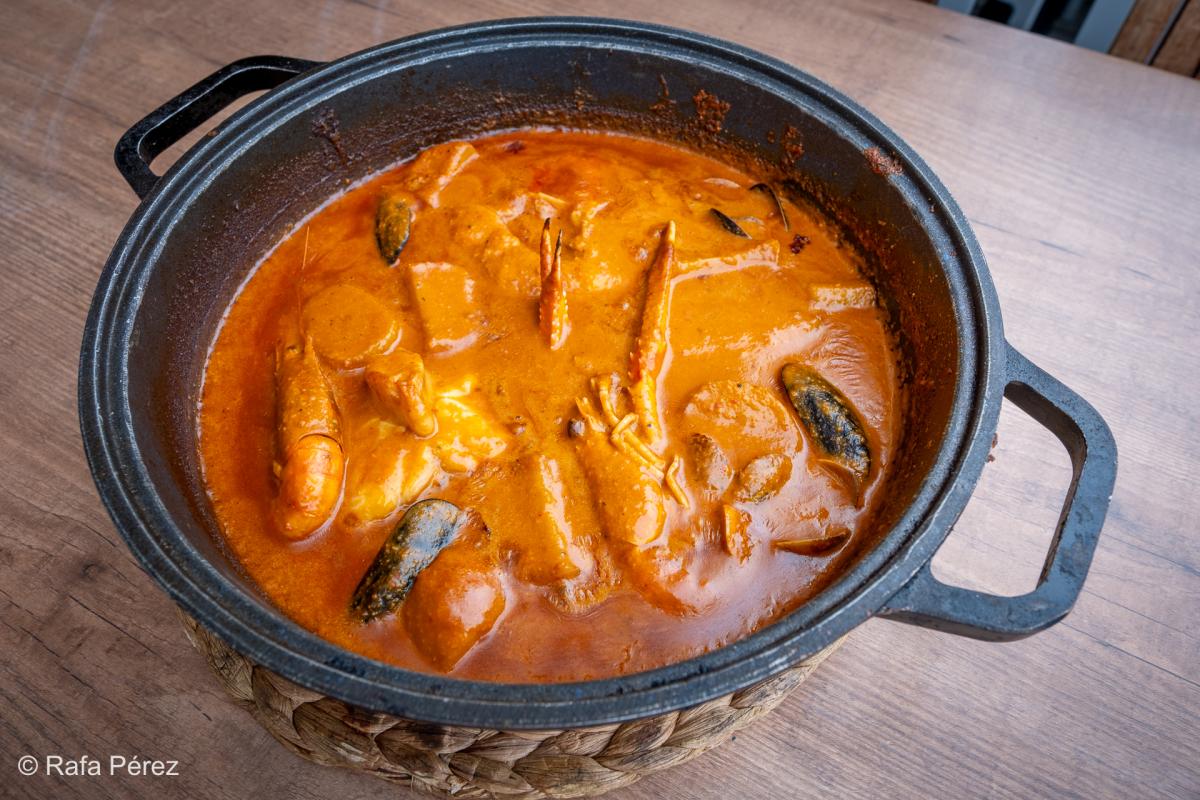
Tradition, identity, and gastronomic projection
Matías Leandro is another of the people who feel great esteem for the quarter. When he was president of the Serrrallo Association of Restaurateurs and Traders, he set up the first Romesco Days. They sought to project the image of the quarter to the outside world through some element that would identify it. "Romesco was a poor man's food, made with whatever was at hand. The fishermen spent many hours at sea, without a fridge. They used to make the most of their food. Dried bread, a handful of dried fruit that preserved well, the long, wrinkled romesco pepper, a piece of fish that could not be sold". One of the main tasks of these gastronomic days was to spread the word, with activities such as teaching how to make a picada (various seasonings pounded in a mortar), in schools. Although the origin of romesco is uncertain, we can place it somewhere between Torredembarra and Cambrils. "Which was the most important fish market, where there were more boats?" asks Matías, convinced that the dish was born on board the Serrallo boats. He recommends fish that is tough, without a lot of bones. In addition to monkfish, he mentions sea bass and turbot if they are of a good size, or dogfish. But above all he adds affection and love, to be there for what you must be there for, to make sure that nothing is burnt in the mince, to have a good grasp of the measurements that work, which are measured in pinches. He says that the romesco has taken the direction of a festive dish, that we have given it dignity and substance by adding some red shrimp from Tarragona. Grandma Txeli, on the other hand, says that she prepares romesco any day, for no special reason. And she finishes by saying: "Now I'll tell you about my grandfather's life. Shall I tell you about it?

